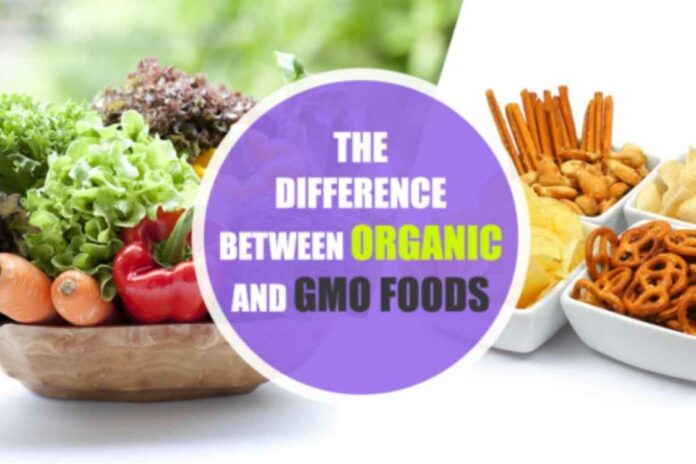In this blog we are going to tell you about Difference Between GMO and Organic, so read this blog carefully to get the complete information.
Organic foods include fruits, vegetables, meats, and other consumables that are devoid of pesticides, antibiotics, drug residues, herbicides, and neurotoxins, among other dangerous compounds. Organic foods are normally more expensive than GMO foods, but they are worth it.
are more softer on customers and the environment as a whole.
What Are Genetically Modified Organisms (GMOs)?
Genetically modified organisms, or GMOs, are organisms that have been altered in some way. Genetically enhanced or modified foods include any food that has been genetically engineered to add or remove particular molecules from its natural structure. During this procedure, a gene that would not ordinarily be present in an organism is typically introduced into its molecular structure. These genes are commonly retrieved from a strain of bacteria or virus and are used to change the design of meals. The recent trend of huge blueberries and strawberries found in stores is a good example of this.These fruits have been genetically changed and manipulated to increase their total size and dimensions and hence appeal to more buyers. They’re also known to be pest-resistant.
RELATED – DIFFERENCE BETWEEN KOBE AND WAGYU
Advantages of Genetically Modified Foods
- While it may appear odd to change or add organisms to food, there are a few advantages:
- GMO foods are less expensive to manufacture.
- Weeds are less likely to infest the crop.
- Fruits have a sweeter flavor as a result of this.
- Higher nutritionally upgraded features offer customers with health benefits
GMO Foods’ Drawbacks
- As with everything abnormal, there are several drawbacks:
- Many plants now produce bacterial poisons, resulting in pest resistance.
- Herbicide-resistant superweeds have been identified.
- These dangerous microorganisms and poisons are consumed by humans.
- GMOs are a novel food source for humans, and some people are allergic to them.
- Cancer is discovered in rare situations as a result of changed substances in dietary products.
Comparison of ORGANIC & NON-ORGANIC FOODS?
Organic foods are those that are devoid of hazardous chemicals, pesticides, antibiotics, drug residues, and neurotoxins. Because they need more care to produce and must be certified, they are virtually usually more expensive than GMO foods. Pesticides must also be organically authorized before being used, raising the price even further. Organic foods, in fact, can cost up to 50% more than ordinary foods. Is it worthwhile to choose organic meals over GMO foods?
Advantages of Organic Foods
- Here are some reasons why organic foods could be worth the money:
- When cultivating organic produce, pesticides are prohibited.
- Roundup is not allowed to be used on organic crops. Herbicides like Round-up are commonly used to kill weeds.
- Hexane is not used in organic farming. Hexane, a neurotoxic found in common vegetable oils such as soybean, canola, and maize, is a neurotoxin.
- Hormones are not present in organic meats. Many individuals are concerned that eating growth hormone-treated meats would raise their risk of cardiovascular disease.
- Antibiotics are not used in organically bred animals. This means the meat it produces will be free of any potentially dangerous pollutants you could have eaten otherwise.
Organic Foods’ Drawbacks
- Adopting a 100% organic food diet may appear to be a healthier option, however there are some drawbacks:
- GMO and non-GMO foods are much more costly than organic goods.
- Organic goods are not available at every grocery shop. Visiting a farmers market rather than a supermarket may be a better alternative.
- It’s easy to ruin. Because organic foods have a shorter shelf life than GMO goods, they must be consumed as soon as possible after purchase.
- Bacterial levels are higher.Organic foods have been related to an elevated risk of e-Coli bacteria in the digestive tract due to the low to
- non-use of pesticides and herbicides on organic foods. There is no nutritional value. Organic food does not provide a significant nutritional advantage over conventional foods, according to research.


